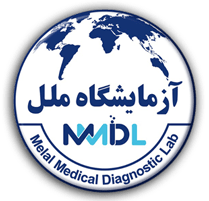§ Congenital dyserythropoietic anemia
The congenital dyserythropoietic anemias (CDAs) are a heterogeneous group of inherited blood disorders characterized by anemia and morphologic abnormalities of erythroid precursors in the bone marrow, a consequence of dyserythropoiesis and ineffective erythropoiesis. CDAs were classified into three different types: type I, type II, and type III. CDA I is inherited in an autosomal recessive pattern and it represents the second most common form of CDA. Type II CDA is the most common type of CDA that is inherited in an autosomal recessive pattern. Type III CDA is the rarest CDA variant with a familial and a sporadic form. The familia form is inherited in an autosomal dominant and the sporadic form is inherited in an autosomal recessive pattern.
Lab tests:
CBC and Automated Differential
Blood Smear with Interpretation
Reticulocyte count
Serum bilirubin
LDH
Direct antiglobulin (Coombs)
Iron and TIBC
Bone marrow aspiration and biopsy

